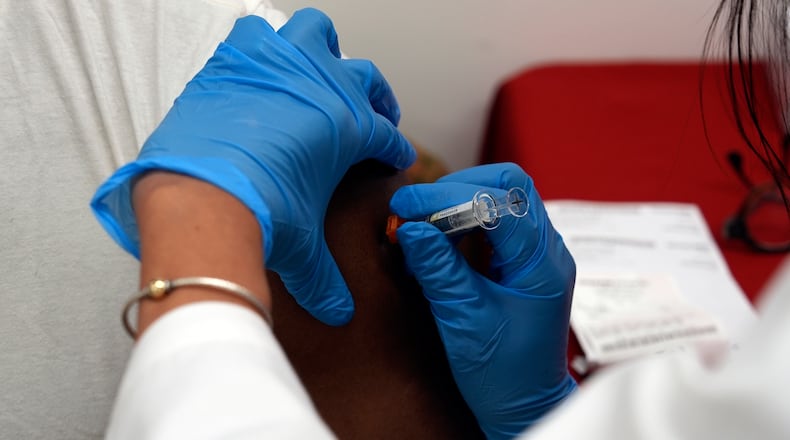Although case levels have declined from the peak of the pandemic, an average of 35 Ohioans still die of COVID-19 each week. For the year, the number of Ohioans who have died of COVID-19 is approaching 1,000. That number was 958 as of Oct. 23.
In addition, more than 6,000 Ohioans (6,266) have been hospitalized this year.
“The virus continues to evolve and can cause severe illness or death, particularly among those who are unvaccinated. As a state, we need to take caution to not let our guard down,” Vanderhoff said.
Within the last week, ODH reported 2,751 cases of COVID-19, which only includes PCR tests and not at-home tests.
There have been 108 hospitalizations in Ohio within the last week, down from the three-week average of 126 hospitalizations, according to ODH. There were 18 deaths related to COVID-19 within the last week, down from the three-week average of 27.
Since the beginning of October, there have been 10 hospitalizations related to COVID-19 in Butler County, as well as none in Clark County and 30 in Montgomery County, according to the most recent data from ODH.
Wastewater data testing indicates the presence of COVID-19 is increasing substantially in the Dayton area, while remaining steady in other nearby regions, acording to ODH.
The Centers for Disease Control and Prevention (CDC) recommends that everyone 6 months or older receive the updated COVID-19 shot to protect against severe illness this fall and winter, along with an annual flu shot.
Vaccination lowers the risk of COVID-19 infection, hospitalization and death, health experts say.
“You still need to be vaccinated, whether the cases are up or down. Same thing with the flu,” said Dan Suffoletto, public information manager for Public Health - Dayton and Montgomery County.
In addition, getting vaccinated against COVID-19 can reduce the risk of developing long COVID, which is a set of debilitating symptoms that can linger for months or even years after infection, according to ODH.
“With colder weather and the holiday season fast approaching, getting vaccinated is as important as ever, especially as we look forward to indoor gatherings with friends and loved ones,” Vanderhoff said.
This is particularly important for those ages 65 or older, as well as those who are immunocompromised or have certain chronic health conditions, as they are at greater risk, Vanderhoff said.
Getting vaccinated now can give your body time to build up the immunity from the vaccine.
“As holidays approach, some of the most exciting, fun, and memorable activities take place during the holidays,” Suffoletto said. “Not only do you want to be well during that time period, if you have family members and children, you also want to be well so you can help them enjoy the holidays as much as possible.”
Vaccines are readily available through healthcare providers and at many pharmacies. Visit Vaccines.gov to find a pharmacy near you.
About the Author

